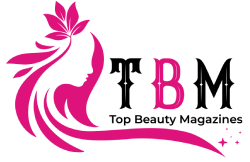Explore the intricate link between menstruation and hair health, unraveling how hormonal fluctuations affect your locks throughout the cycle. Menstruation can have various effects on a woman’s body, including potential impacts on hair health. It’s important to note that these effects can vary among individuals, and not every woman will experience significant changes in hair health during menstruation. Additionally, lifestyle factors, genetics, and overall health play crucial roles in determining the impact of menstruation on hair. While individual experiences may vary, here are some common effects:
Table of Contents
Hormonal Changes in Menstruation and Hair Health
Menstruation is associated with hormonal fluctuations, particularly changes in estrogen and progesterone levels. These hormonal shifts can influence the growth cycle of hair. Some women may notice increased hair shedding during their menstrual cycle due to hormonal changes.
Estrogen
Estrogen, a primary female sex hormone, is known to promote hair growth and maintain the thickness of hair strands. During the first half of the menstrual cycle (the follicular phase), estrogen levels rise, contributing to healthy and robust hair. The shift from higher estrogen to higher progesterone levels, which occurs just before menstruation, can trigger changes in the growth cycle of hair. This transition may lead to more hair follicles entering the shedding phase (telogen phase) earlier than usual. After menstruation, as estrogen levels begin to rise again during the follicular phase, hair growth typically resumes. Hair follicles transition back to the anagen (growth) phase, and new hair strands start to emerge.

Telogen Effluvium
Increased hair shedding during the menstrual cycle, known as telogen effluvium, is a temporary condition. Hormonal changes cause a substantial number of hair follicles to enter the resting (telogen) phase simultaneously, resulting in heightened hair loss. This phase is typically transient, and as hormonal balance is restored, the affected hair follicles re-enter the growth (anagen) phase, promoting new hair growth.
Progesterone
Progesterone, another female sex hormone, increases in the second half of the menstrual cycle (the luteal phase). While it doesn’t directly stimulate hair growth, it does contribute to maintaining the overall health of hair. It’s important to note that the effects of progesterone on hair health can vary among individuals. Factors such as genetics, overall health, and lifestyle also play significant roles. If someone is experiencing concerns about their hair health or noticing changes in hair quality, consulting with a healthcare professional or a dermatologist can help determine the underlying causes and provide appropriate guidance.
Oil Production and Scalp Health
Indeed, hormonal changes associated with menstruation can impact the sebaceous glands, which are responsible for producing sebum (the skin’s natural oil). Here’s a closer look at how hormonal fluctuations during the menstrual cycle can influence scalp oiliness and, consequently, overall hair health and manageability. It’s important to note that while hormonal changes can influence scalp oiliness, various factors, including genetics, diet, and overall health, also play roles in determining individual experiences. If someone experiences persistent issues with scalp oiliness or has concerns about their hair and scalp health, consulting with a dermatologist or a healthcare professional can provide personalized guidance and solutions.

Water Retention
Water retention, a frequent occurrence during menstruation, can influence overall hydration levels in the body. Adequate hydration is crucial for maintaining healthy hair. Fluctuations in water retention during the menstrual cycle may indirectly affect hair health, potentially leading to variations in hair texture, shine, and resilience. Ensuring consistent and proper hydration, especially during menstruation, is a supportive measure for sustaining optimal hair health and vitality.
Iron Levels
Menstruation can result in blood loss, leading to a potential decrease in iron levels in the body. This scenario may contribute to conditions like iron-deficiency anemia. Iron plays a crucial role in hair growth, and a deficiency can impact the hair follicles. Individuals with low iron levels may experience increased hair shedding, weakened strands, or slower hair growth. To support optimal hair health, it’s important for individuals, particularly menstruating women, to ensure adequate iron intake through a balanced diet or supplements if recommended by a healthcare professional.
Nutrient Absorption
Hormonal changes during menstruation can influence nutrient absorption, affecting the body’s ability to obtain essential vitamins and minerals. Adequate intake of nutrients is crucial for maintaining healthy hair. Any disruptions in nutrient absorption during menstruation may impact the strength and vitality of the hair. To support optimal hair health, individuals are encouraged to maintain a well-balanced diet rich in essential nutrients or consider supplements if necessary, under the guidance of a healthcare professional.

Stress and Emotional Well-being
Menstruation often brings physical discomfort and emotional changes. The link between stress, emotional well-being, and hair health is significant. High-stress levels during menstruation or at any time can contribute to conditions like telogen effluvium. In this condition, hair follicles enter a resting phase prematurely, leading to increased shedding. Managing stress through relaxation techniques, regular exercise, and self-care practices can positively impact overall well-being, potentially benefiting hair health during menstruation and beyond.
Post-Menstrual Hair Growth
After menstruation, estrogen levels begin to rise during the follicular phase of the menstrual cycle. This increase in estrogen is associated with the resumption of the hair growth cycle. Hair follicles transition from the resting (telogen) phase back to the active growth (anagen) phase. During the anagen phase, new hair strands start to emerge, contributing to the renewal and growth of the hair. This cyclic process ensures the continuous regeneration of the hair follicles and the maintenance of a healthy hair growth cycle.
Does menstrual cycle affect hair?
Menstruation can have various effects on a woman’s body, including potential impacts on hair health.
Can heavy periods cause thinning hair?
Heavy periods can often lead to too much blood loss which can further lead to light anemic symptoms including increased heart rate and hair loss.
What hormone causes hair loss in females?
Dihydrotestosterone imbalances, or DHT.
Should I wash my hair everyday on my period?
Washing hair everyday on your periods is perfectly safe. Make sure not to strip away natural oils by washing too much.

